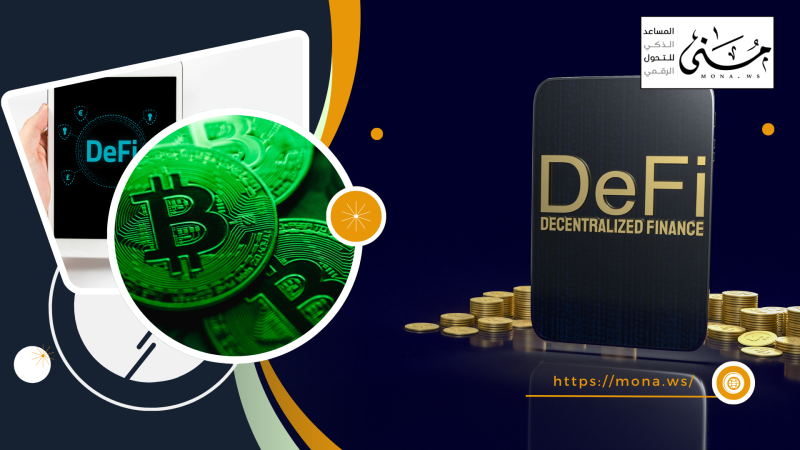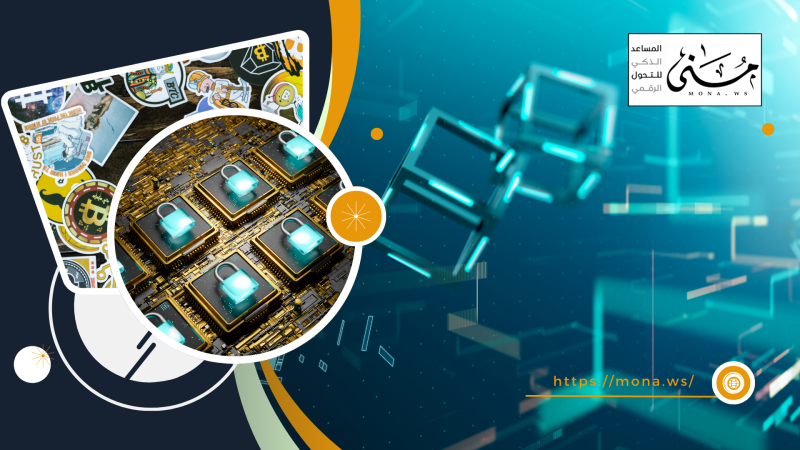The digital world has witnessed tremendous development in recent years, and Blockchain technology has played a pivotal role in this transformation. This technology is known as a distributed and secure digital ledger that allows transactions to be recorded in an immutable manner, which enhances transparency and security levels in various fields, from digital currencies to smart contract management and supply chains. With the increasing need for innovative solutions to protect data and improve business processes, Blockchain has become one of the most promising technologies in the modern era.
This article aims to provide a comprehensive overview of Blockchain technology, by reviewing its basic concept, mechanism of operation, and its most prominent applications in various sectors. We will also discuss the challenges facing the adoption of this technology, in addition to its potential future in light of the ongoing digital developments.
What is Blockchain?
The concept of Blockchain and its mechanism of operation
Blockchain is a distributed digital ledger that stores data and transactions in a secure and transparent manner. It consists of a series of interconnected blocks, where each block contains a set of transactions and is linked to the previous block using an encryption algorithm, making it almost impossible to modify or tamper with the data.
Distributed digital ledgers and connected blocks
Unlike traditional databases that rely on a central server, blockchain relies on a distributed digital ledger that is copied and updated across a wide network of connected devices (nodes). Whenever a new block is added, it is verified by all nodes in the network, ensuring security and transparency.
The concept of decentralization in blockchain
In traditional systems, a central entity such as banks or companies controls data and transactions, while in blockchain, control is distributed over a decentralized network of users. This means that any change or modification requires majority approval within the network, which reduces the risk of manipulation or hacking.
Smart Contracts and How They Work
Smart contracts are self-executing programs that run on the blockchain network, where the terms of the contract and agreements are pre-defined and automatically executed when the conditions are met. For example, smart contracts can be used in finance, insurance, and supply chains to ensure that transactions are executed securely and without the need for an intermediary.
Blockchain technology is revolutionizing the field of data storage and digital transactions thanks to its unique features such as security, transparency, and decentralization. With the development of applications such as smart contracts, this technology has become a fundamental pillar of the future of technology in many industries.
Blockchain Uses
Blockchain technology has become an essential part of many sectors thanks to its unique features such as transparency, security, and decentralization. Here are some of its most prominent uses:
Cryptocurrencies and the role of blockchain in them
Cryptocurrencies such as Bitcoin and Ethereum are among the first and most famous practical applications of blockchain. These currencies operate on decentralized networks, making transactions fast, secure, and tamper-proof. Blockchain records all transactions in a distributed digital ledger, allowing financial transactions to be traced transparently without the need for an intermediary such as a bank.
Supply chain management and product tracking
Blockchain is used in supply chain management to ensure traceability of products from source to end consumer. For example, it can be used in the food industry to ensure product quality or in the pharmaceutical sector to prevent the spread of counterfeit drugs, as all data is recorded on the network in an immutable manner.
Security and transparent electronic voting
Electronic voting is one area that can greatly benefit from blockchain technology. A blockchain-based system ensures that elections are transparent and tamper-proof, as each vote is recorded in an immutable record, reducing the risk of fraud and providing a more reliable electoral process.
Healthcare
In the healthcare sector, blockchain can be used to securely store electronic medical records of patients, making it easier to share information between hospitals and doctors without compromising data privacy. It also helps in tracking medications to ensure that there are no counterfeit products on the market.
Real Estate
Blockchain technology contributes to recording real estate transactions in a more transparent and secure manner, as it can be used to prove ownership of real estate and store digital contracts without the need for intermediaries. Smart contracts also provide an automated way to execute real estate transactions quickly and without human error.
Intellectual Property Rights
Blockchain helps protect the intellectual property rights of artists and creators by registering copyrights on an immutable network, ensuring that ownership of artworks and digital content such as images, music, and software is tracked.
Thanks to its ability to provide security, transparency, and reduce reliance on intermediaries, Blockchain has become a revolutionary technology whose applications extend to various sectors, enhancing efficiency and trust in modern digital systems.
Advantages and Disadvantages of Blockchain
First: Advantages of Blockchain
Security and Transparency
Blockchain is characterized by a high level of security, as all transactions are encrypted and recorded in an immutable record. Transparency also allows all participants in the network to view the recorded data, which reduces the chances of fraud and manipulation.
Decentralization and Reducing the Need for Intermediaries
Blockchain operates on a decentralized system, meaning that there is no central authority controlling data or transactions. This reduces the need for intermediaries such as banks or financial institutions, making operations more efficient and secure.
Efficiency and Transaction Speed
Blockchain can improve the speed of transaction execution, particularly
 مستقبل المعاملات الرقمية يبدأ هنا! تعرّف على البلوك تشين وكيف يساهم في تأمين البيانات وتسهيل العمليات دون الحاجة إلى وسطاء.
مستقبل المعاملات الرقمية يبدأ هنا! تعرّف على البلوك تشين وكيف يساهم في تأمين البيانات وتسهيل العمليات دون الحاجة إلى وسطاء.











Comments
Add New Comment